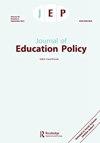昆士兰公立学校“无处不在”的英语政策:商业化的许可证
IF 3
2区 教育学
Q1 EDUCATION & EDUCATIONAL RESEARCH
引用次数: 2
摘要
摘要:本文探讨了私有化的政策逻辑,通过在澳大利亚昆士兰州的国家教育系统中为英语作为附加语言或方言(EAL/D)的学生提供服务。在EAL/D的背景下,有针对性的政策已被纳入更广泛的伞形或元政策中,同时,对EAL/D学习者的资金支持是实质性的。通过自主定向资助将EAL/D支持下放到个别学校,导致政策“无处不在”,分布在广泛的投资组合中,致力于确保学校为所有学习者提供优质的教育服务,但也“无处可去”,缺乏系统的支持和关于如何为EAL/D制定包容性的细节,也没有对学校负责,以证明他们正在解决EAL/D学习者的需求。EAL/D政策与广泛的系统性包容政策共存,缺乏系统性的专业支持,再加上权力下放到学校场地,在实践中对政策产生了实际影响。分析表明,有可能在学校现场向市场力量开放EAL/D提供,私营部门可以直接向学校出售商业“解决方案”,学校在单一预算方面拥有更大的自主权。本文章由计算机程序翻译,如有差异,请以英文原文为准。
The ‘everywhere and nowhere’ English language policy in Queensland government schools: a license for commercialisation
ABSTRACT The paper explores the policy logics of privatisation through service provision for students with English as an Additional language or dialect (EAL/D) in the state education system of Queensland, Australia. In the context of EAL/D, specifically targeted policy has been subsumed by a broader umbrella or meta-policy of inclusion, whilst at the same time, funding support for EAL/D learners is substantial. The devolution of EAL/D support to individual schools through autonomous targeted funding results in policy ‘everywhere’, distributed across broad portfolios dedicated to ensuring schools provide quality education services for all learners, but also ‘nowhere’, lacking systemic support and detail on how inclusion should be enacted for EAL/D and with no accountability placed on schools to demonstrate that they are addressing EAL/D learner needs. The co-location of EAL/D policy with a broad systemic policy of inclusion, the absence of systemic professional support, combined with devolution to school sites has had real effects on the policy in practice. The analysis demonstrates there is the potential opening of EAL/D provision to market forces at school sites, where the private sector can potentially sell commercial ‘solutions’ directly to schools, which have greater autonomy over one-line budgets.
求助全文
通过发布文献求助,成功后即可免费获取论文全文。
去求助
来源期刊

Journal of Education Policy
EDUCATION & EDUCATIONAL RESEARCH-
CiteScore
8.10
自引率
8.00%
发文量
25
期刊介绍:
The Journal of Education Policy publishes original, critically and theoretically informed research that discusses, analyses and debates policymaking, policy implementation and the impact of policy at all levels and in all facets of formal and informal education. The journal is interested in analysis and theorisation of policy that is transposable, that has generic interest and relevance - national policy case studies would need to be conceptually and/or methodologically generalisable. The journal also publishes work that presents new methods of research and research studies that are experimental and innovative. The journal offers a forum for theoretical debate, as well as historical, philosophical and comparative studies, across different countries, contexts and levels of education. A valuable resource for academics, researchers, educators and policy makers, Journal of Education Policy provides rigorous and original insights into educational policy development, implications and global impact.
 求助内容:
求助内容: 应助结果提醒方式:
应助结果提醒方式:


